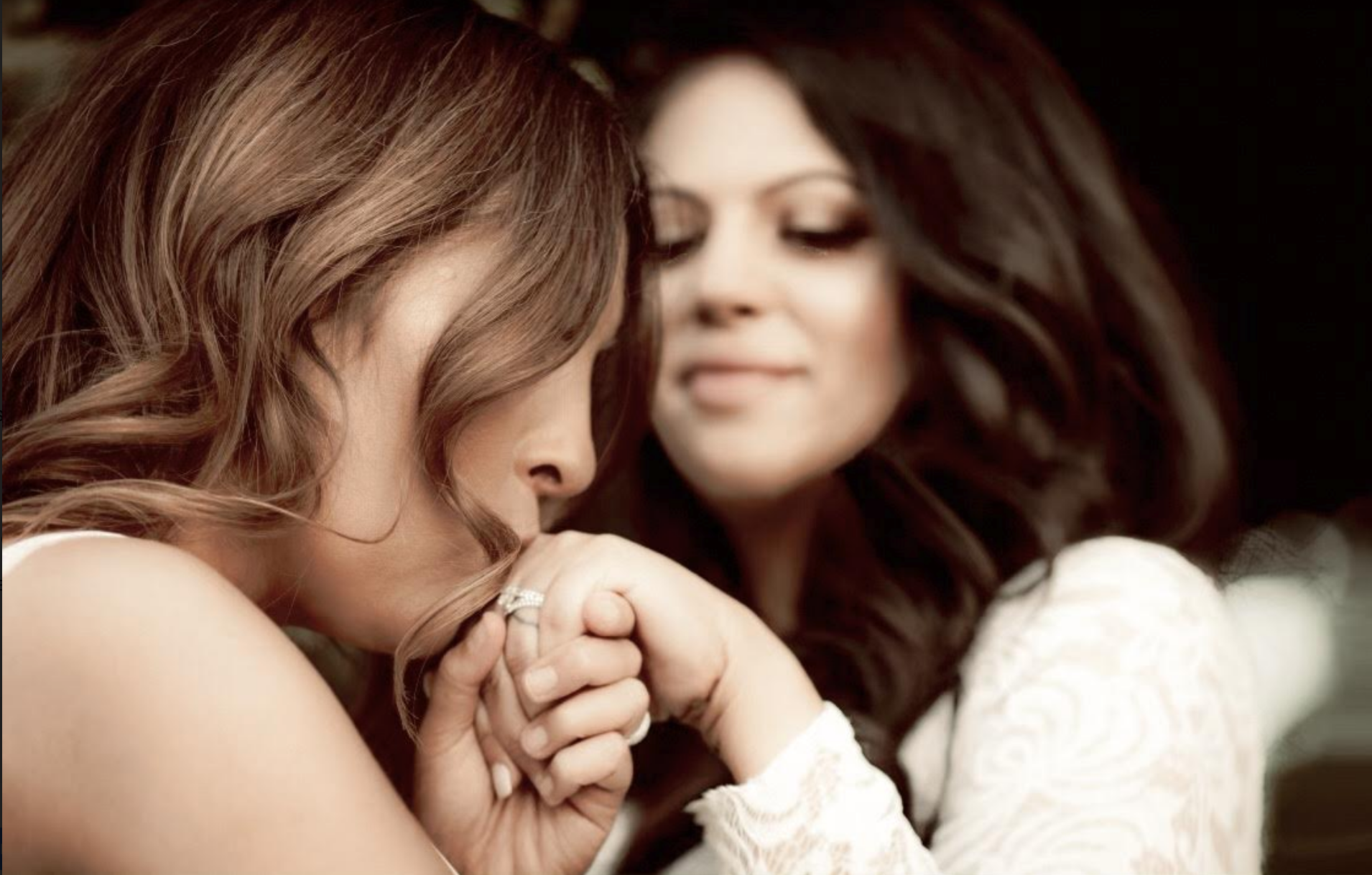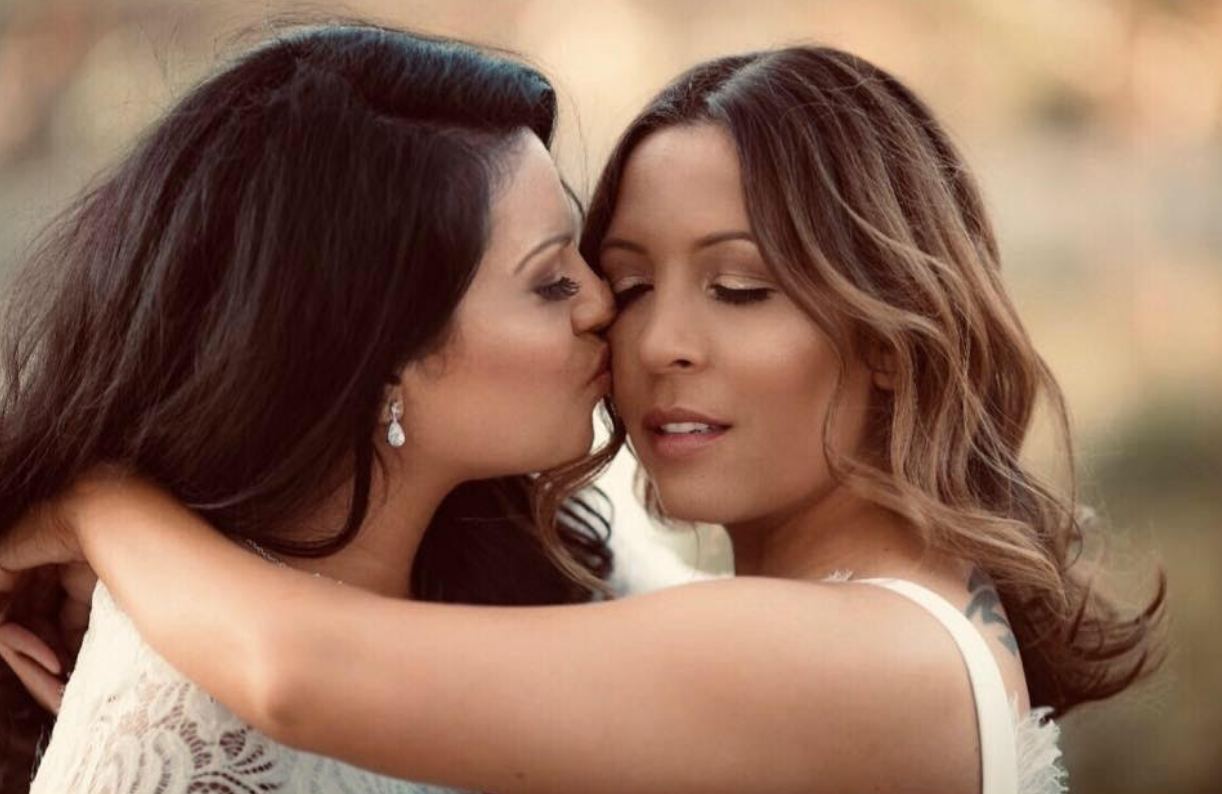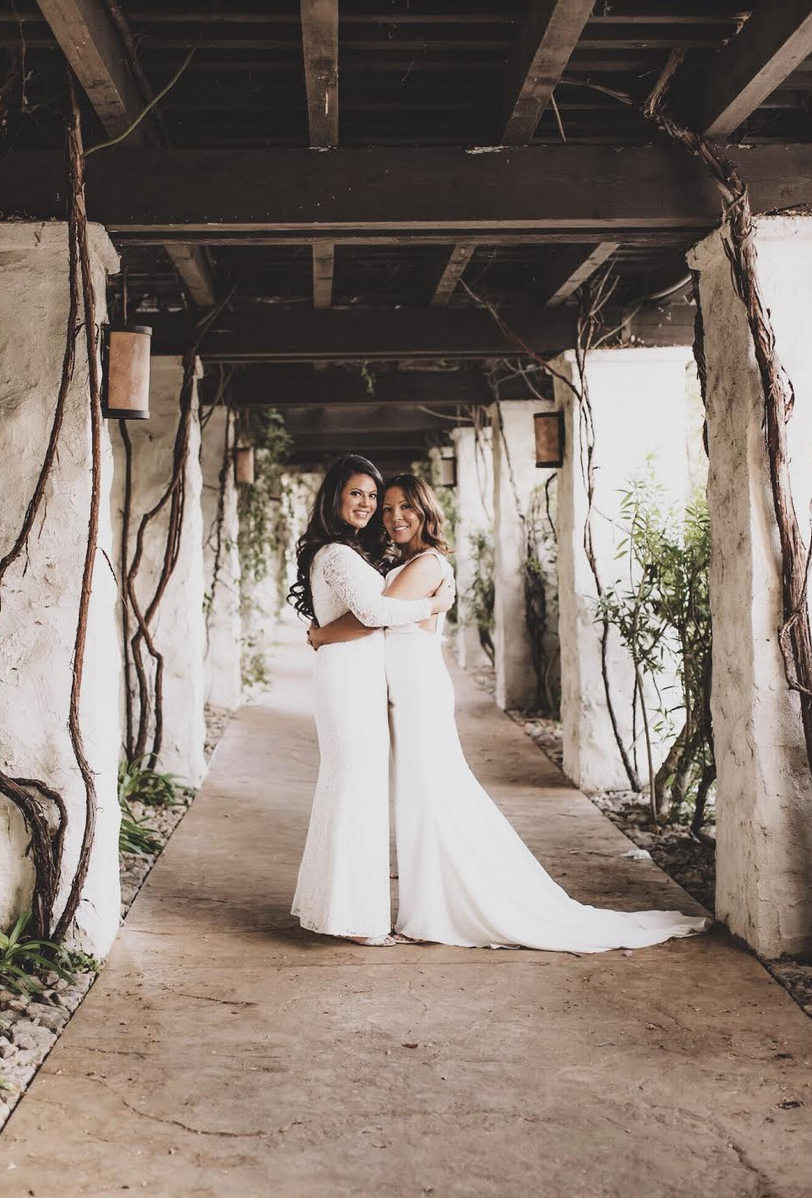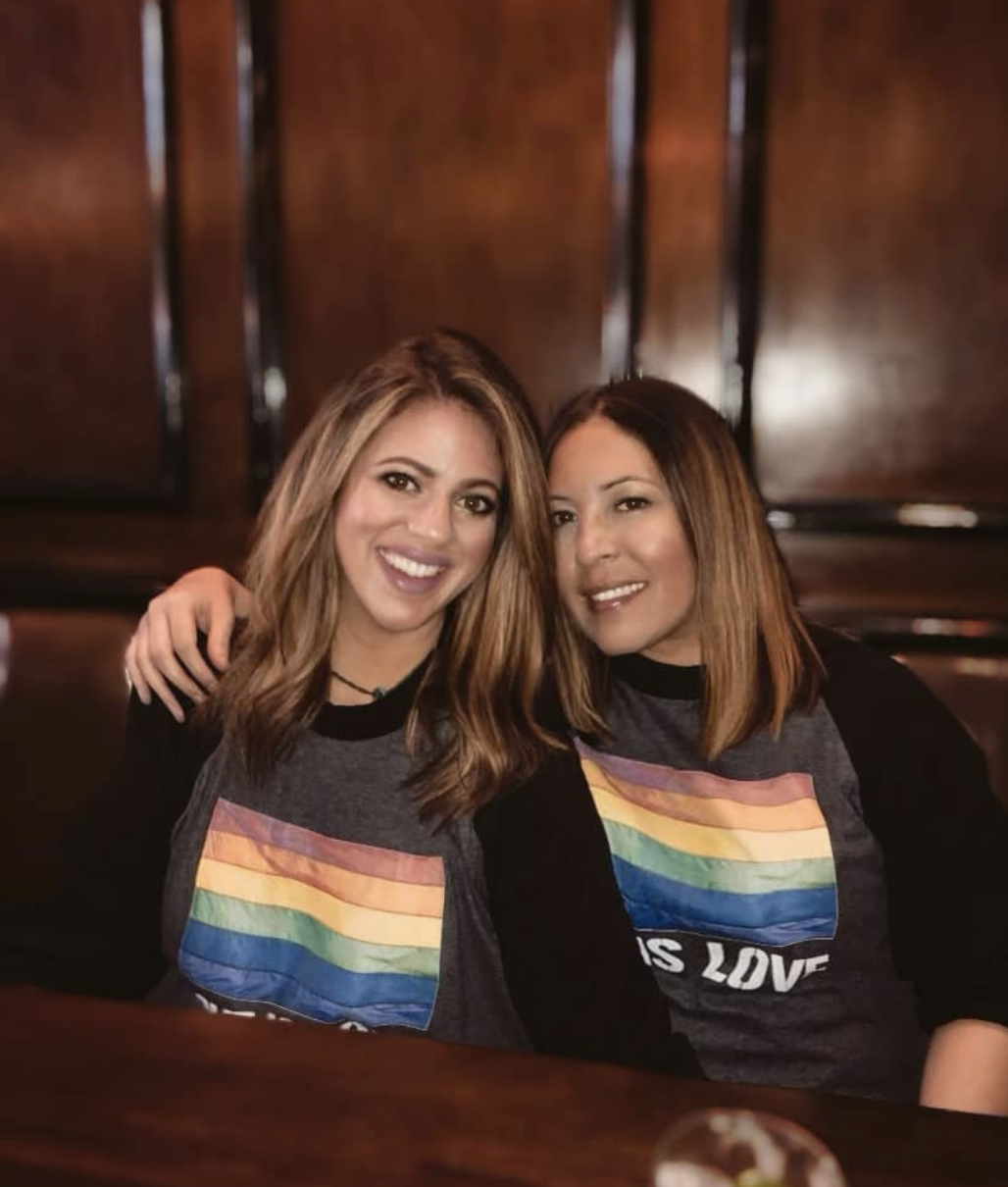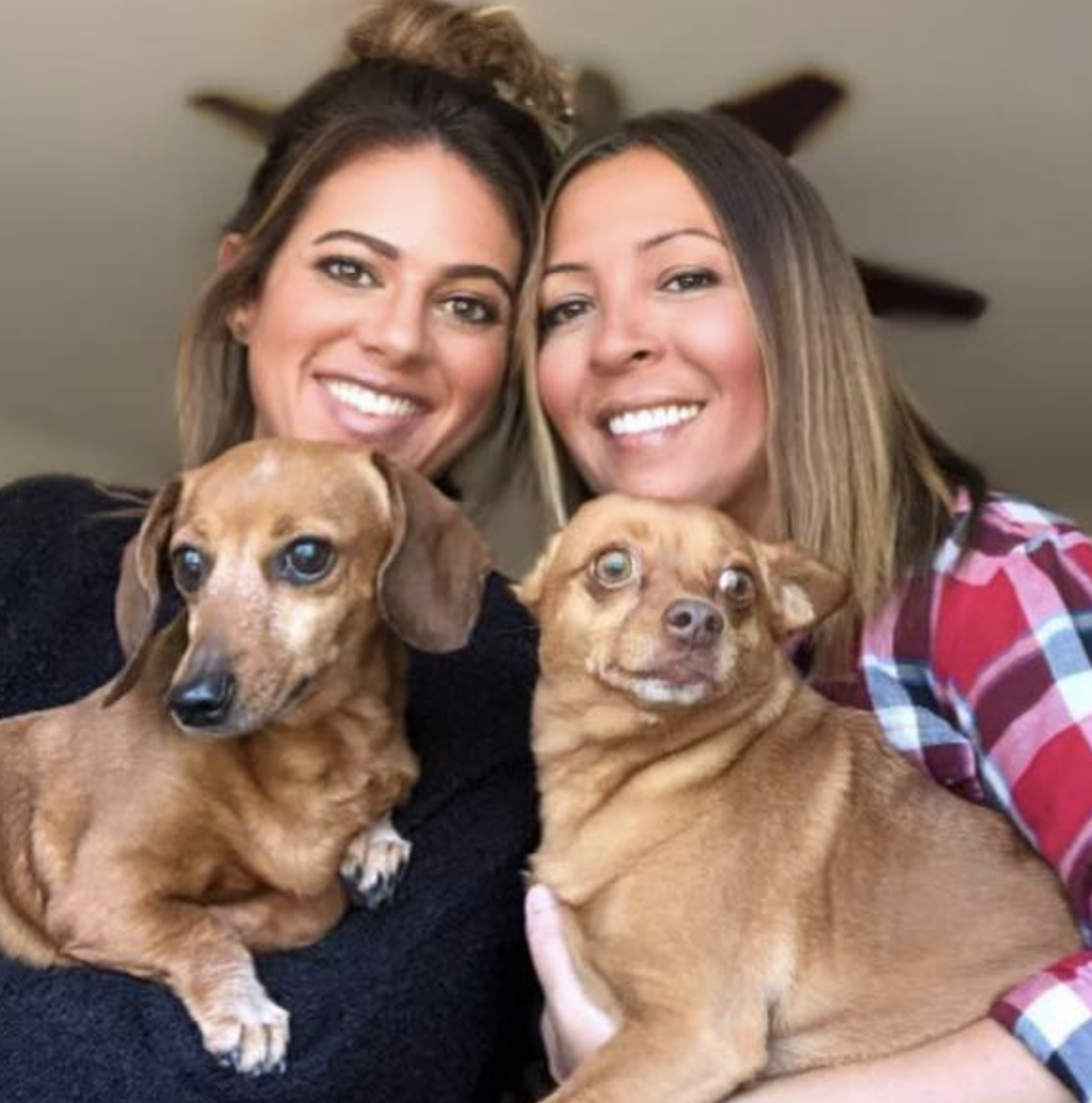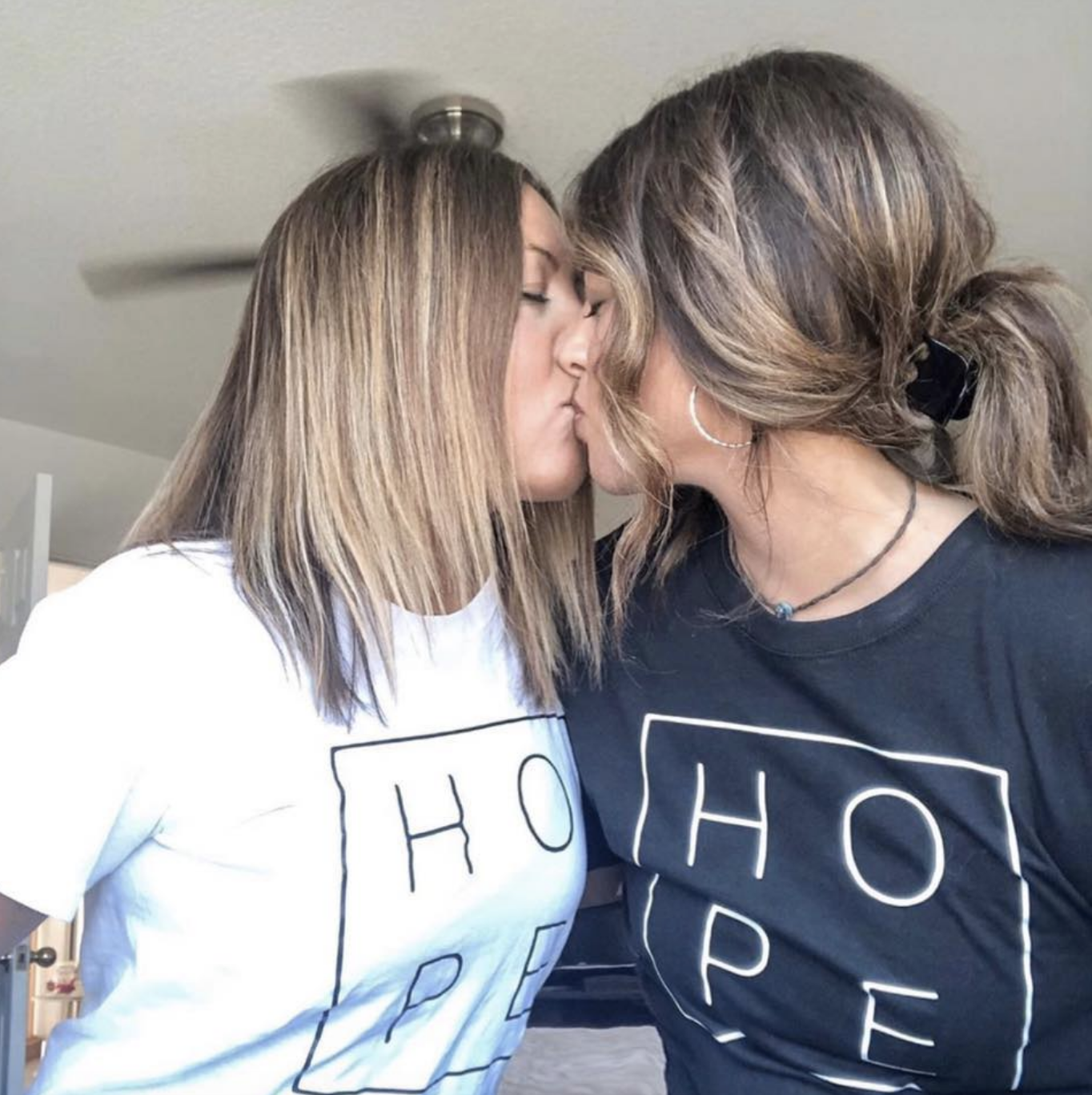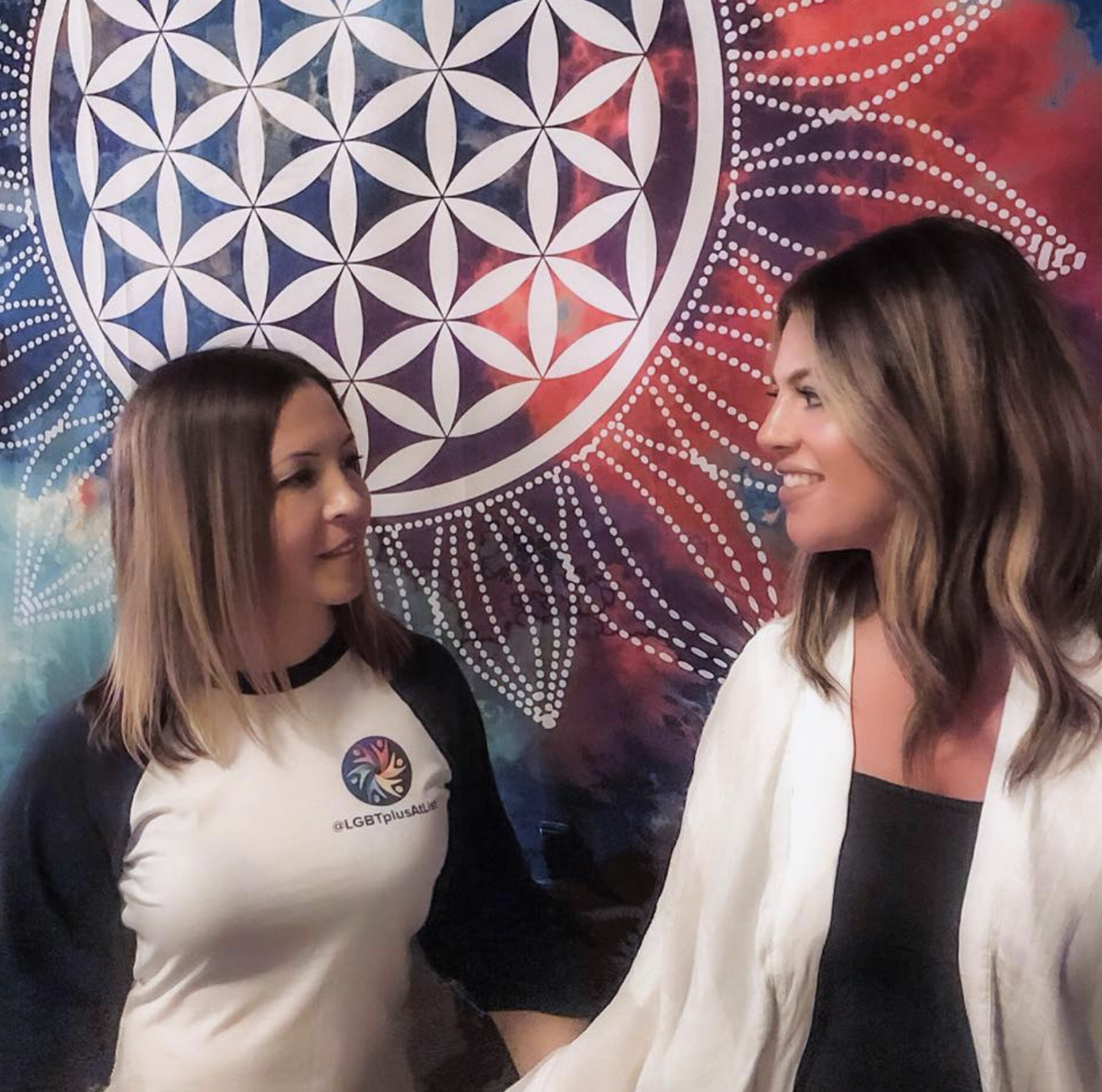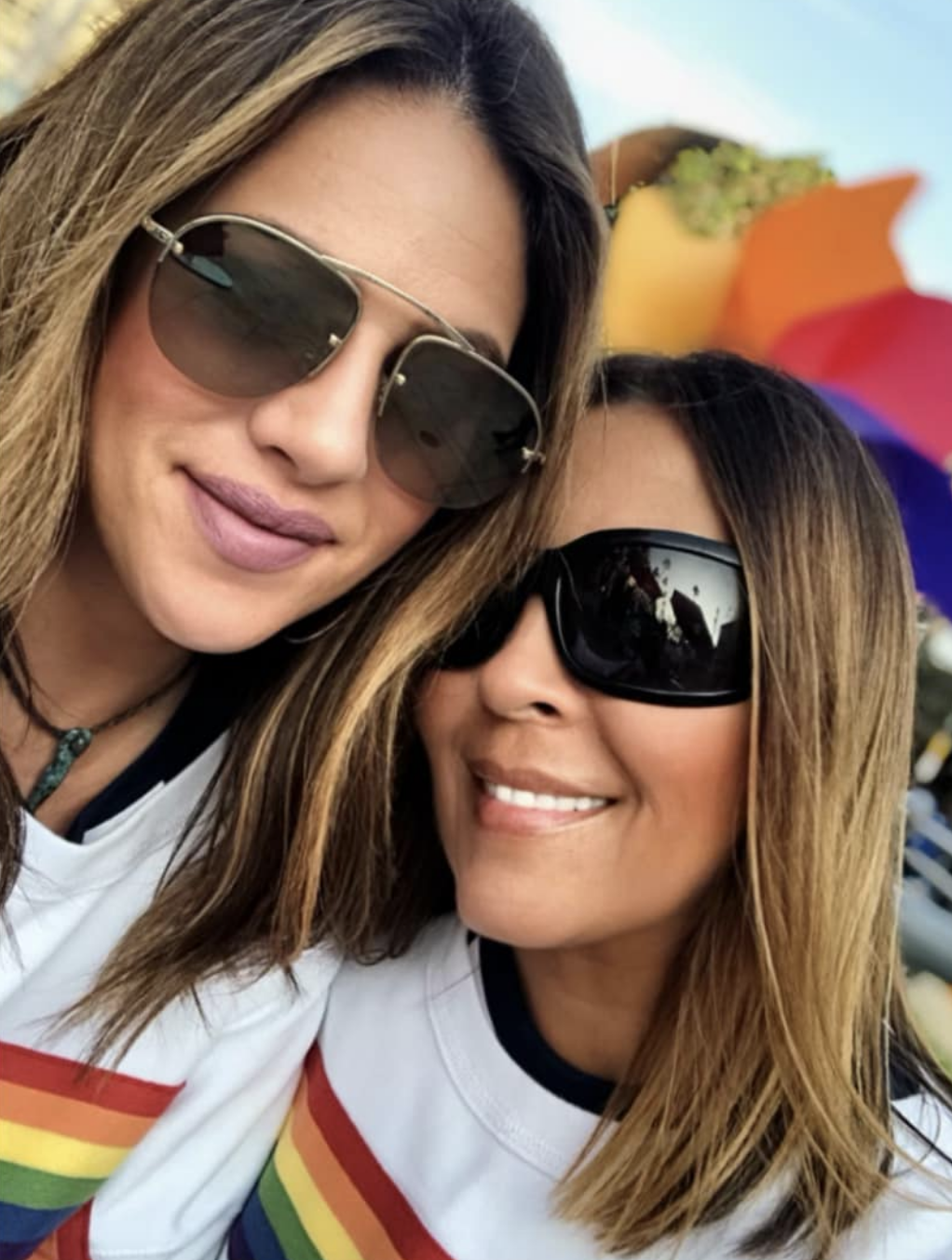Credit: Jess and Heather Camarillo
Heather and Jess Camarillo met in the early 2000's on MySpace! They were friends online for years and in 2010 it took a romantic turn. They were destined to become the Camarillo’s of Camarillo, CA!
Heather is a Systems Engineer at a leading tech company in California and Jessica is a former Security Engineer turned Real Estate agent. When they aren’t working you can find them at the beach or barbecuing in their backyard. They love being at home with their family, friends and fur babies, Lucy & Betty.
Together Heather and Jess share their story to not only de-stigmatize infertility and also to support the LGBTQ+ community with resources for the path to parenthood.
In honor of Pride month, I asked Heather and Jess to share their ongoing fertility journey with us.
HC: We started our journey in February of 2018 and discovered that I have extremely low AMH (0.12) which means I have Diminished Ovarian Reserve (DOR). We did two retrievals and were able to get two (2) viable embryos. We transferred the first embryo in October of 2018 and it did not implant. We transferred our second one in February of 2019 which also did not implant. We then went on to do 3 more IVF's. One of those IVF’s was canceled due to ovulation and on the other I had ovulated again at retrieval. During our last IVF we only retrieved 1 egg and it did not fertilize.
Luckily for us, in the summer of 2019 we met an amazing couple who had three (3) embryos to donate. We formed a very quick bond with them and they gave us their remaining three embryos!
We are now moving forward with the transfer hopefully in July of one of those donated embryos.
Our donated embryos are/were in Idaho since that is where they were frozen so we planned to do the transfer there. We didn't want to disturb the embryos at all by shipping them to our clinic in CA. However, due to the Covid-19 pandemic, travel has become difficult so we had one of the embryos shipped from the Idaho clinic to our clinic in Encino, CA!
We were very nervous about shipping our embryo. Our RE (Reproductive Endocrinologist) told us from the beginning that there was a chance that our embryo's would not survive the trip. That was why we had ultimately decided to do our transfers in Idaho. While it is rare that the embryo does not survive, we wanted to make sure we did everything in our power to get it here (to our clinic in CA) safely. We went with a courier who was recommended to us by both clinics and also purchased the additional insurance. It was very stressful especially during the couple of days when we knew it was in transit, but everything worked out perfectly. It was a super smooth process and we couldn't be happier with the transportation company.
You recently shared that “IVF wasn’t the quick fix you thought it would be”. What do you wish you knew now about your journey that you didn’t know when you started?
HC: At the beginning especially before finding out about my DOR, we thought that this would be easy. We are just a same sex couple who needed some help introducing my eggs to some sperm. I always had very regular cycles so there were never any indications that there might be a problem. Even after our consultation with our RE we still felt like this would happen since age was on my side. Other than the DOR I am very healthy and my RE let us know that even patients with DOR can still have a perfect, little baby.
It wasn't until after the first transfer that it really sunk in that this was going to be anything but easy or quick.
I wish I knew exactly how much of an impact my low reserve was going to be on this process. What we really wish is that we were aware of all of this years ago and even if we weren't ready to have kids, I could have still frozen embryos when I was younger; when I most likely had more eggs. We wish we knew then what we know now.
Based on your experience, is there anything you wish your healthcare provider knew about the needs of the LGBTQ+ population?
HC: Our RE was actually very well informed and had worked with other LGBTQ+ couples previously. We are very lucky in that aspect that our RE knew how to work with us.
What can straight people learn about the LGBTQ+ community dealing with infertility?
HC: We feel not everyone understands that it's not always easy for the LGBTQ+ community to come out of fertility treatment successfully. It is very easy for some and they are so lucky and blessed, but, others like Jess and me it has been anything but an easy journey.
Has the infertility journey changed you in any way?
HC: I don't know if it has changed me or if it has just made me realize things about myself that I didn't before we started.
I have realized that I am much stronger than I thought; I have never failed at something so much. Usually when I put my mind and all of my energy into something I come out successfully. This has been different, I have failed multiple times, but I pick myself back up and keep going.
Jess doesn’t feel changed really but definitely feels more educated in regards to infertility, treatment and has learned how to be supportive for someone who is going through the treatments. Jess has also become an expert with administering injections which is something she never thought she could do!
We have both stepped outside of our comfort zones in so many ways on this journey and it has only made us stronger than we ever thought we could be.
Has infertility impacted your relationship?
HC: I think if anything it has brought us closer. I have heard that this can unfortunately impact relationships in a negative way. Jess and I want the same thing, we talk through everything and always make sure we are on the same page and are still aligned. Jess has been so supportive through all of this, she rarely misses any of my appointments and I feel very lucky to have such a supportive partner by my side.
How has your infertility experience amplified your pride in any way?
HC: So many in the LGBTQ+ community have believed the antigay rhetoric in our culture and have put off their dreams of parenthood.
I feel it's important that we help each other (in the LGBTQ+ community) feel empowered to try and have the families we have always wanted.
We heard and saw stories from others where they were treated poorly or even told they wouldn't be helped because of their sexuality. We felt that we wanted to help our community from having to go through this so we have built out a document with LGBTQ+ friendly clinics. We have also thought about creating an app where this information is easily accessible and up-to-date.
What resources can you share with others in the LGBTQ+ community who are considering expanding their families?
HC: There are many wonderful groups on Facebook actually that are specific for the LGBTQ+ community wanting to start families. They are extremely informative and supportive. Also, if you would like to look at our list of LGBTQ+ friendly clinics (national and international), here is the LINK.
Support Heather and Jess’ journey by following their story @camarillosofcamarillo on IG.


